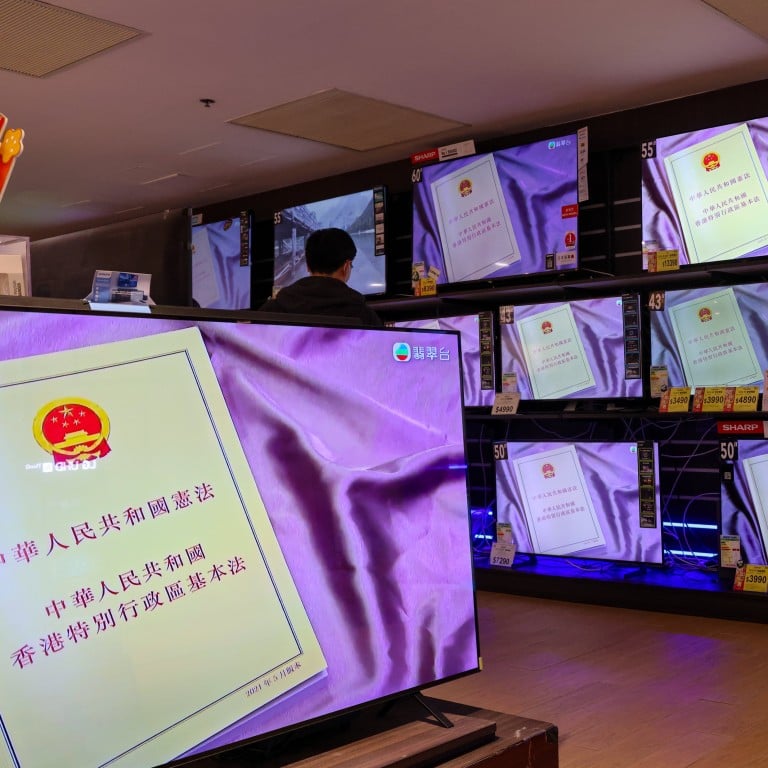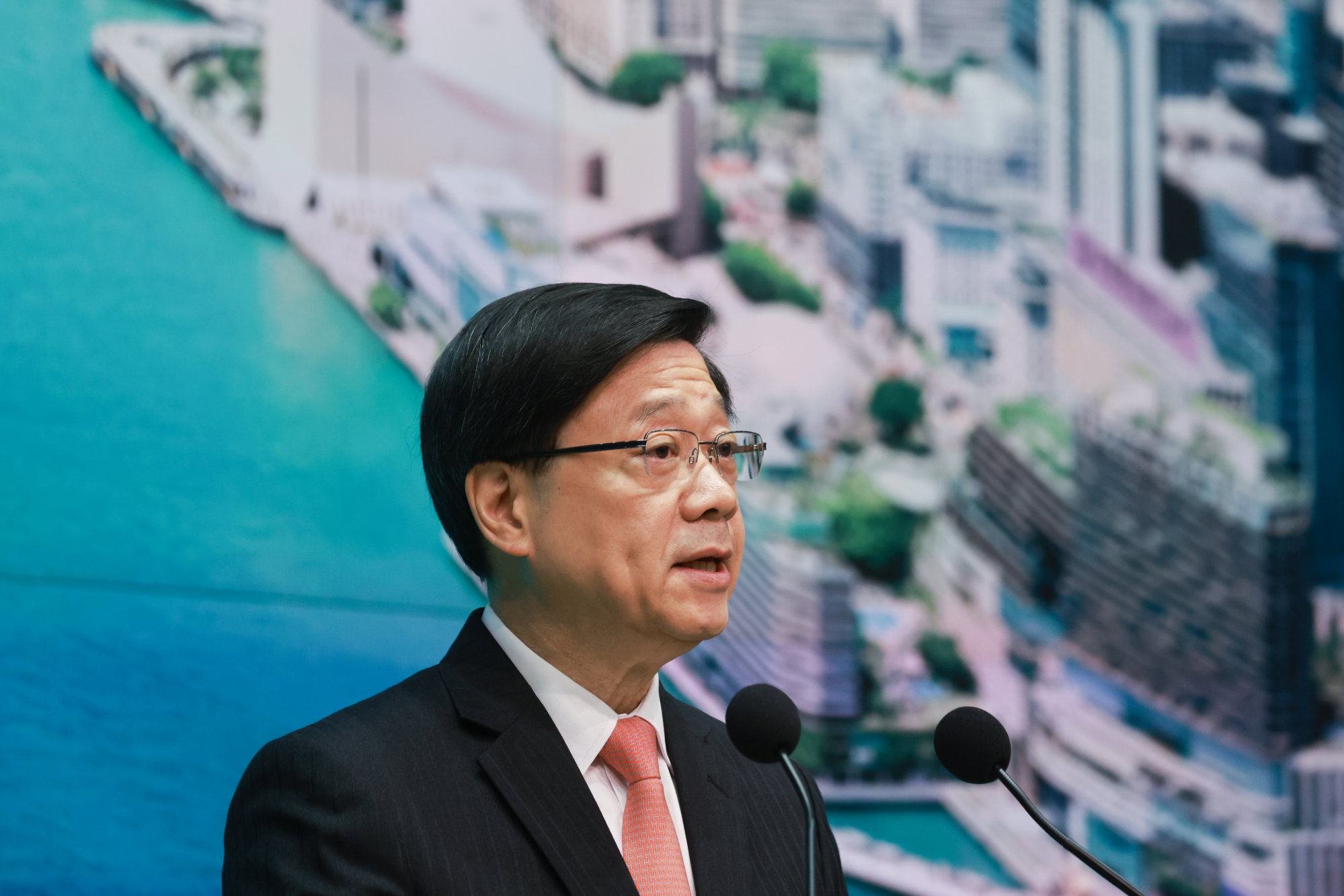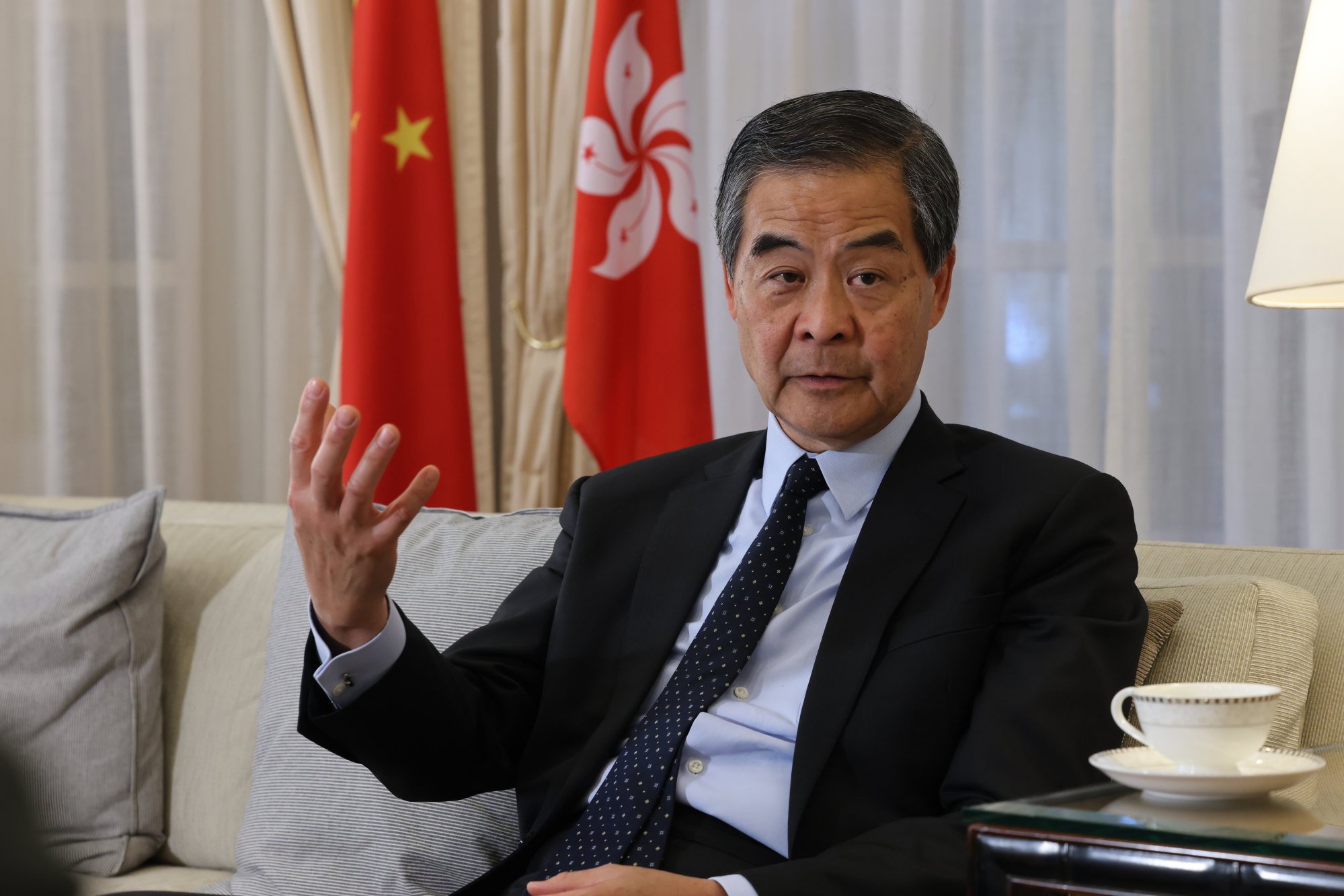
Public opinion backs Hong Kong Article 23 national security law, Chief Executive John Lee says
- Lee also says his administration will report full results of one-month consultation exercise to legislature in due course
- ‘The general opinion … [is] in support of the overall goal of enacting Article 23 to ensure that we protect ourselves when people want to cause damage to us,’ he says
But he gave no further details about when the proposed law would go before lawmakers.
Authorities unveiled plans to pass the legislation last month, which Hong Kong is mandated to create under Article 23 of the Basic Law, the city’s mini-constitution.
The proposed law would introduce five types of new offences and complement the national security law imposed by Beijing in 2020.

Lee said the “general opinion” expressed in the public consultation showed “support of the overall goal of enacting Article 23 to ensure that we protect ourselves when people want to cause damage to us”.
“A lot of opinions subscribe to the idea that this is a piece of legislation that will ensure that when other people want to break into our house, cause harm or damage to us, then the Article 23 enactment should be able to protect us from all these threats, attacks, break-ins and harms,” he added as he prepared for a meeting of the Executive Council, the city’s key decision-making body.
Lee said public knowledge of the bill was “very strong” after the city went through the “attempted colour revolution” in 2019 – anti-government protests sparked by a now-withdrawn extradition bill.
Lee was asked if the national security legislation would be discussed next month, but said only that it would be enacted as early as possible.
Hong Kong should better explain new national security offences, top adviser says
“The general consensus is that if we can do it one day earlier, we should do it one day earlier because the threat continues and the threat has been mounting, so we must gear up our efforts to ensure that we will do it as soon as possible,” he added.
Among the proposed new offences are external interference, which would outlaw acts that used improper means in collaboration with an outside force to, among other things, influence the central and city governments over the formulation or execution of policy, or interfere with the city’s elections or the work of the legislature.
Thomas Gnocchi, head of the European Union Office to Hong Kong and Macau, said on Monday it had signalled its “significant concerns” over the legislation to the government and was particularly worried about the external interference offence.
Foreign business chambers and diplomats in Hong Kong earlier said they were concerned about risks to investment and potential enforcement standards that could affect their nationals, despite many of them showing public support for the proposed legislation.

Chris Tang Ping-keung, the Secretary for Security, said on Monday the government had organised nearly 20 consultation sessions with members of the public, foreign consulate representatives, city and international chambers of commerce and other sectors.
Tang on Tuesday dismissed a joint statement signed by British-based campaign group Hong Kong Watch and 86 other organisations on the proposed legislation. The statement insisted that many of its provisions were vague and would criminalise the peaceful expression of human rights.
It added the law would introduce a number of procedural changes that would undermine due process and the right to a fair trial.
Head of Beijing office overseeing Hong Kong affairs to make fact-finding visit
But Tang said much of the joint statement was made up of smears, was misleading or wrong.
He added that charges related to seditious intention in the consultation document only targeted instigation and legitimate and fact-based criticism would not be illegal.
Tang said that Article 23 would not affect the right of residents to a fair trial and that it was unfair for other countries to criticise Hong Kong when they had similar provisions for the detention of suspects for more than 48 hours.
“We need to think about who the people are behind this joint statement,” Tang said. “They are external forces.
Hong Kong needs to better explain security law to foreign businesses: CY Leung
“The legislation of the national security law Article 23 targets external forces who endanger our safety.”
The government also issued a condemnation of the joint statement and said it was full of deliberate smears and remarks that were at odds with the truth.
“What the joint statement advocates squarely reflects the ongoing national security threats which anti-China and destabilising forces pose,” a spokesman said. “The ... government will complete the legislative exercise as early as possible to plug the relevant national security loopholes.”

